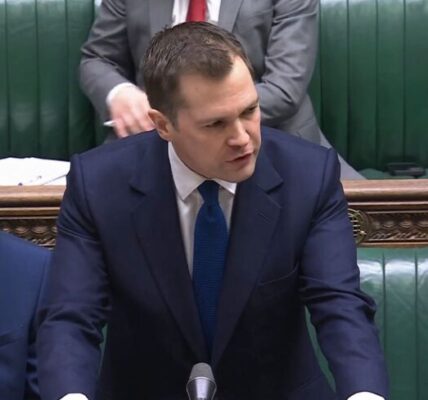As British politics winds down before 2025, we analyse some of the key areas in which the Tories need to step up their game.

Five things the Tories must do in 2025 to stave off Reform (Image: Getty)
2024 will go down in history as the most bruising year ever for the Conservative and Unionist Party.
It was clear from Liz Truss’s 2022 Mini Budget that the Tories had run out of road and public goodwill, but the exit poll on July 4 2024 will never be forgotten by the party.
Unlike the disastrous 1997 election, however, the Tories do not have the luxury of time between now and the next election in 2029 to get their ducks in a row.
Nigel Farage’s Reform UK appears to be the only party in British politics with momentum, and they will be looking to consolidate their polling and council by-election successes next year.
Ahead of the new year, we take a look at some of the key areas the Tories must focus on if they have any chance of staving off the tsunami of Reform UK.

Nigel Farage is on the march (Image: Getty)
1. Kemi cut-through
Kemi Badenoch won the Tory leadership largely because her supporters believe she has a star power to cut-through to ordinary voters.
Focus groups during the leadership election suggested this was the case, and her backers still believe she has the right priorities and beliefs on the key issues.
However it is fair to say that she has not secured enough cut-through with the general public since her election in November.
Her outings at PMQs have been largely successful, demonstrating a force of nature, and a willingness to talk about issues in a fresh way.
One half-hour session a week is not enough. Beyond PMQs, one might observe Ms Badenoch’s only cut-through so far has been a questionable row about whether sandwiches are woke.
Against Nigel Farage, the Tory Party needs to get Ms Badenoch out there on the front foot, capturing the limelight and grabbing voters’ attention on a weekly basis.
This will become easier the more there is media buy-in she is the real deal and could beat Keir Starmer in 2029 – but Reform’s continued high polling numbers make that much more difficult.

PMQs is not enough for Kemi Badenoch (Image: Parliament)
2. Policies
Ms Badenoch has turned policy ambiguity into an art form. Unlike her rival Robert Jenrick who appeared to have a clear-cut and fully-though out policy on just about everything, Ms Badenoch demurred from setting her views in stone.
I’m told that 2025 will not be the year she changes this strategy, with loyalists insisting she is right to insist there is no point announcing policies this far out of an election.
Kemi’s main offering is a ‘rewiring of the state’, a top-to-bottom reset of the civil service, human rights laws, regulations, the judiciary, quangos, public services.
The problem with this is it’s simply not ‘retail’ enough – voters do not have a clue what it means. Will it mean more money in their pocket? What taxes will she cut? What levels of immigration does she want? Will she leave the ECHR?
I appreciate Kemi wants to take all of this slowly, but she needs to come out with some popular mass-appeal policies in the next year so voters can start to form some idea of what she stands for.
As I say, this is not 1997. Reform UK is breathing down her back and she does not have the luxury of time to wait until 2029 before getting on top of this.
Don’t miss…
Kemi Badenoch takes savage swipe at Nigel Farage in BBC grilling over Reform [LATEST]
Nigel Farage ‘could become PM’ as pollster outlines horror scenario for Starmer [LATEST]
Reform boost as bombshell poll puts party neck and neck with Labour and Tories [LATEST]

Ms Badenoch refused to set out policies like Robert Jenrick (Image: Getty)
3. Membership
Westminster may be glamorous, but real politics still happens on the local level, in communities and on doorsteps.
The Tory Party is currently a walking corpse of a party, there have been mass redundancies, much of the talent from government has now gone to earn a proper wage in the private sector, and the membership is pitiful.
In the 2022 leadership contest between Liz Truss and Rishi Sunak, there were 172,437 eligible members; two years later that had dropped by 25% to just 131,680.
Reform UK now has a live website ticker counting up their membership to the moment they overtake the Tories – they’re now fewer than 5,000 members from overtaking them.
Members are the essential backbone of a party, they’re more likely to get involved in leafletting and campaigning at elections.
The Tories need to rediscover mass membership and have an offer to both general members and particularly young Britons.

CCHQ has run out of money and manpower (Image: Getty)
4. Social media
Nigel Farage is undoubtedly the king of social media. Across X, Facebook, TikTok, Instagram and YouTube he has an enormous following of 5.4 million.
This is over twice the number of Sir Keir Starmer (2.6 million), and 17 times higher than Kemi Badenoch’s 320,000.
Traditional media cut-through is essential, as explained above, but in 2025 social media is increasingly where voters get their information.
Kemi’s 260,000 X followers and 34,000 Facebook followers are simply not good enough and will prove useless in combatting Mr Farage’s following.
In the 2019 election, the Tories won the social media war for the first time ever using the ingenious methods developed by campaigning agency Topham Guerin.
In 2024 the party could no longer afford their services, and the social media war was a wipeout for the Tories.
Kemi Badenoch must build her social media following urgently.
5. Fundraising
Why couldn’t the Tories afford Topham Guerin in 2024? Because they have completely run out of money.
During the Tory leadership race, the final two candidates had to give CCHQ £150,000 each – the rumour was this would go to funding post-election redundancy payouts for staff.
According to one Tory MP: “Money is by far [Kemi’s] biggest problem”.
They added: “Here in Parliament, you’ve got a whole bunch of people who are prepared to muck in, to do multiple jobs and get on with it. Policy is way down the line, it’s cash we need right now.”
The party ended the election with only £5 million in the bank, that’s now down to just £3 million – well below the annual £25 million-a-year operating cost for a major political party.
The Tories need big money donors now, and Reform UK’s new treasurer Nick Candy is already on a mission to steal that money away.
Without cash, a party is like a rowing boat with no oars. To beat Nigel Farage, Kemi Badenoch needs a V8 outboard motor – and at the moment it appears no benefactor is willing to stump up for one.

